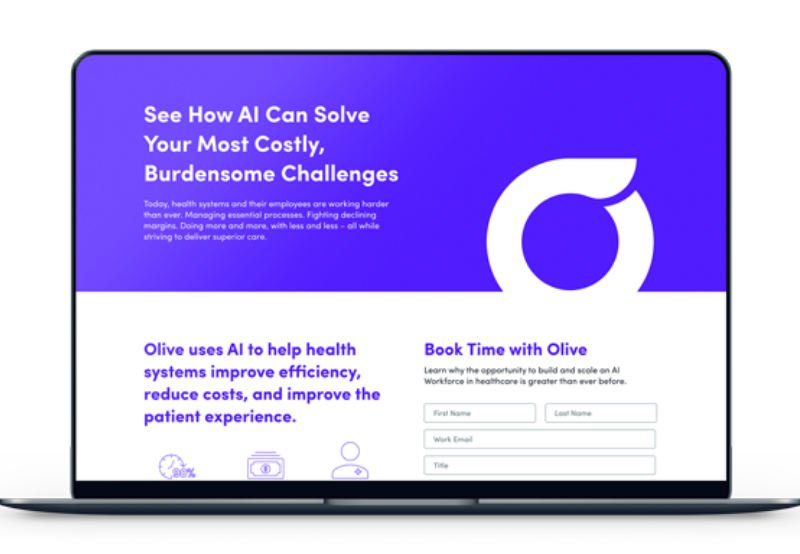Five More Healthcare Startup Cautionary Tales (That Aren’t Theranos)
Ninety percent of startups fail, and healthcare startups— despite their noble ambitions— are not immune to this harsh reality. Even the most well-funded, well-intentioned, star-studded startups can find themselves going in the wrong direction. And some, under immense pressure to succeed, make horrible decisions that don’t just sink the company, but also tarnish their reputations.
I put together the below case studies for my class not with a sense of schadenfreude (for the most part), but with a resolve to learn. We look at the product, what supposedly happened, and where the founder is today (spoiler-alert: most the founders, even after losing tens of millions of investor dollars, are doing just fine).
Part I of this series is here.
And here are five more cautionary tales, in no particular order:
Babylon Health
Raised: $610M in venture funding plus a $4.2B SPAC merger in 2021
Backers: Hoxton Ventures, Kinnevik AB, Saudi Arabia's Public Investment Fund, ERGO Fund, VNV Global
Business: A digital-first health service provider that combined AI with virtual clinical operations for patients globally. In the U.S. market, they had value-based contracts with insurers, meaning they would receive a lump payment to take care of each patient, regardless of how much care each patient required.
Cautionary tale: Attempting to do too much without adequately establishing success in any one country can lead to an unraveling that not even the most promising technological innovation can forestall.
What happened: Babylon Health, despite being early on the AI train, crumbled under the weight of a $369.8M operating loss, serious concerns over misleading claims, and critical data breaches. The tale unfolded into unwinding the company, delisting from the New York Stock Exchange, laying off their entire U.S. workforce, and leaving a legacy laden with lessons for those who fly too close to the sun.
Founder/CEO is now: Unwinding the company.
Cerebral
Raised: $462M
Backers: Softbank, Prysm Capital, Access Industries, WestCap Group, ARTIS Ventures, Silver Lake Partners, Liquid 2 VenturesOak HC/FT, Gaingels
Business: Telemedicine company offering treatment (prescriptions) for mental health disorders
Cautionary tale: Prioritizing growth and profit without establishing solid ethical and regulatory foundations can lead to a quagmire of legal, ethical, and public relations challenges.
What happened: The company faced a storm of controversies as Cerebral's nurse practitioners alleged pressure to unnecessarily prescribe ADHD medications, and a former executive filed a lawsuit claiming the company prioritized profits over safety. The situation worsened when it shared private health data of over 3.1M patients with advertisers and tech giants, eliciting investigations from the FTC, DOJ, and DEA. This led to substantial layoffs, including more than 20% of the workforce, and the tragic death of a 21-year-old who obtained ADHD medication from Cerebral without a previous diagnosis further tarnished the company's reputation and amplified concerns about its prescribing practices.
Founder/CEO is now: working on a new stealth startup.
The Pill Club
Raised: $103.6M
Backers: Base 10, ACME, Base10, GV, Shasta Ventures, VMG
Business: Online birth control prescription and delivery service
Cautionary tale: Billing fraud will catch up with you.
What happened: Originally dedicated to birth control, The Pill Club tried to expand its services and rename/rebrand to “Favor.” But after nearly $3M of branding and dev work, they reverted back to its original name due to a trademark lawsuit. That debacle was nothing compared to the $15M settlement in Feburary 2023 following an investigation by the California Department of Justice, which found unlawful billing practices in connection to California's Medicaid program, Medi-Cal. According to the CA Attorney General, the company was “billing the state for services it had never rendered” and “dispensing enormous quantities of overpriced products its customers had not asked for”. The situation culminated in a Chapter 11 bankruptcy filing in April 2023, marking a stark descent for a company that once aimed to redefine women’s healthcare.
Founder/CEO is now: Co-Founder and Co-CEO of a new stealth startup.
Olive AI
Raised: $902M
Backers: Vista Equity Partners, Base10, Drive Capital, Ascension Ventures, Oak HC/FT
Business: Revenue cycle management (RCM) tasks for health systems and insurers
Cautionary tale: At the end of the day, if you don’t deliver on your promises, customers will go elsewhere.
What happened: The company ambitiously asserted that its technology would lower customers' administrative spending by 5X, but an April 2022 investigation by Axios revealed that Olive's solutions significantly underperformed. Accusations of relying on rough estimates and exaggerating capabilities were compounded by internal turmoil, as evidenced by scathing Glassdoor reviews such as “direction was so scattered" and "management is a trainwreck -- no sense of direction all the way to the top" and "things are so bad, that a new CFO was hired earlier this month. He only lasted 5 work days before quitting". With two rounds of layoffs diminishing its workforce by hundreds, the tale of OliveAI serves as a sobering lesson in the dangers of overpromising and the importance of strong, focused leadership.
Founder/CEO is: continuing to run the company.
FemTec Health
Raised: $38M
Backers: Self-funded
Business: A one-stop women's health platform (founded and funded by a man).
Cautionary tale: Buzz words do not a business make.
What happened: FemTec Health’s mission felt like buzz word soup: "building the data analytics platform and infrastructure to accommodate wide ranging products and services, and acquisitions that provide continuity and coordination of care for every woman, at every life stage." But they didn’t actually accomplish anything, except a few sideways acquisitions including Birchbox (the former Birchbox founder/CEO alleges they didn’t follow through on payment) and Ava (who filed with Switzerland's debt enforcement office to recoup wages they allege were not paid). Ultimately they ran out of money wound down operations.
Founder/CEO is now: a Managing Member of Ithaca LifesScience Ventures.




